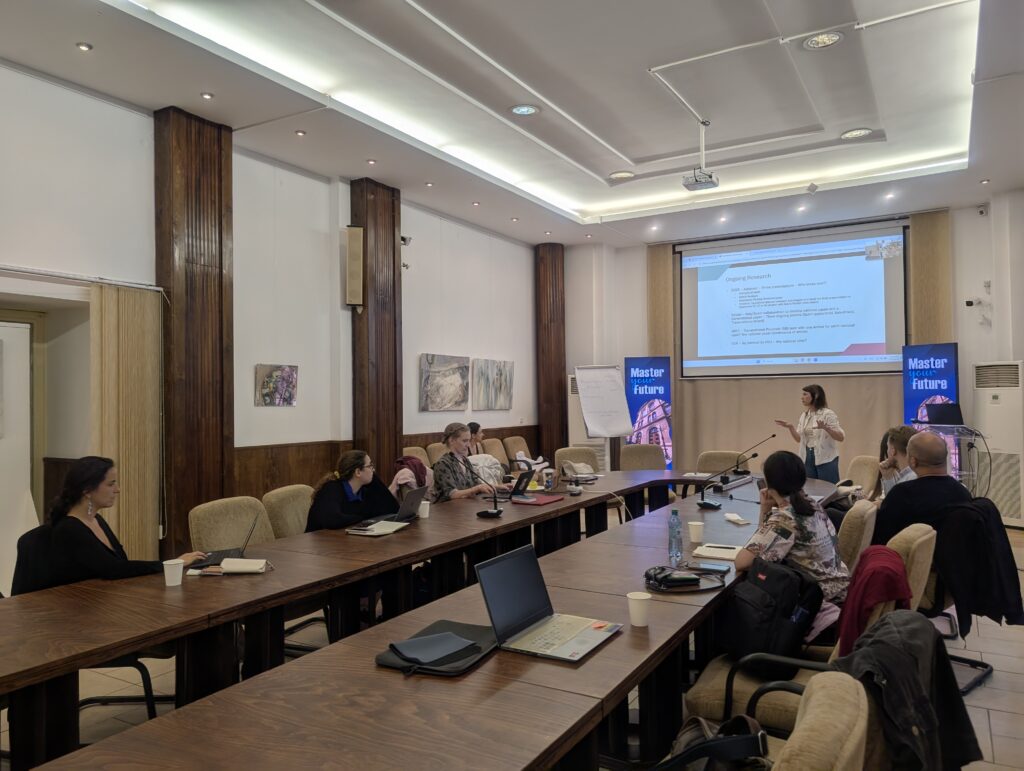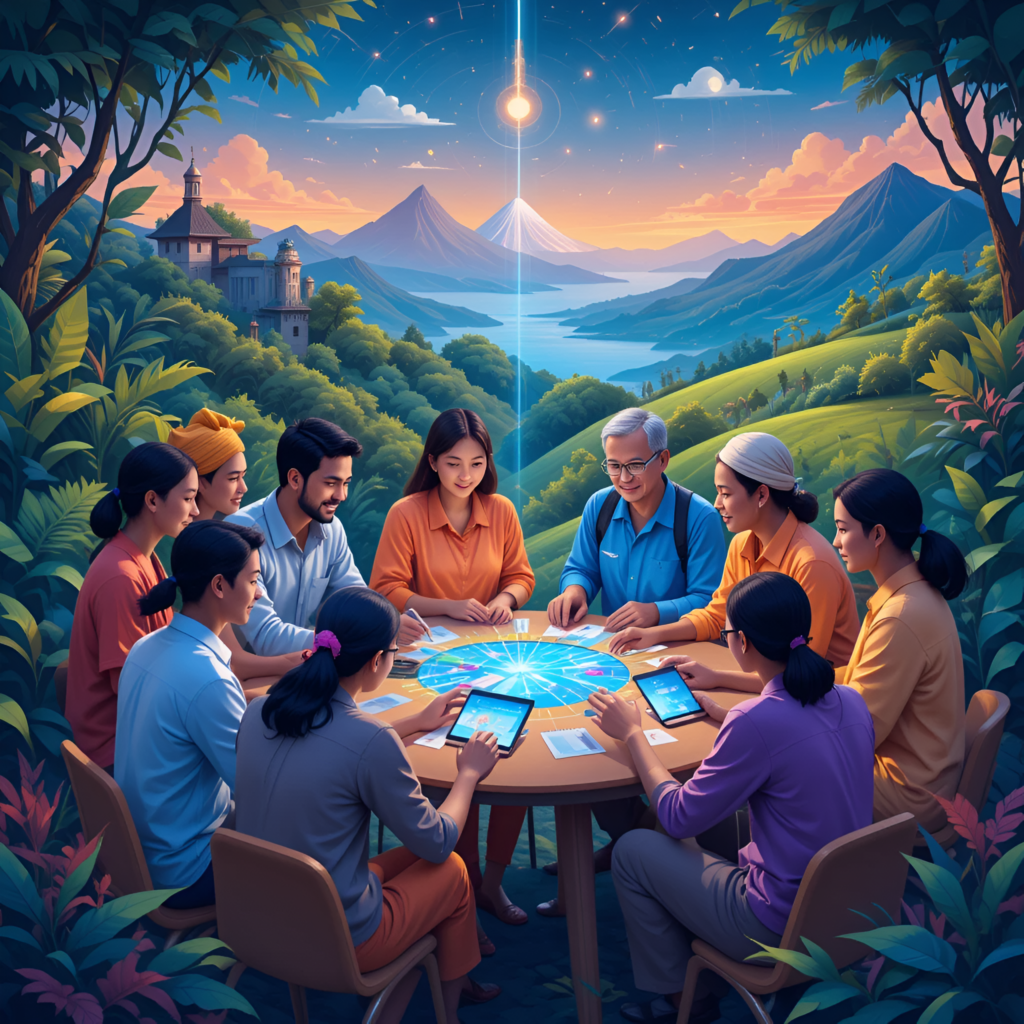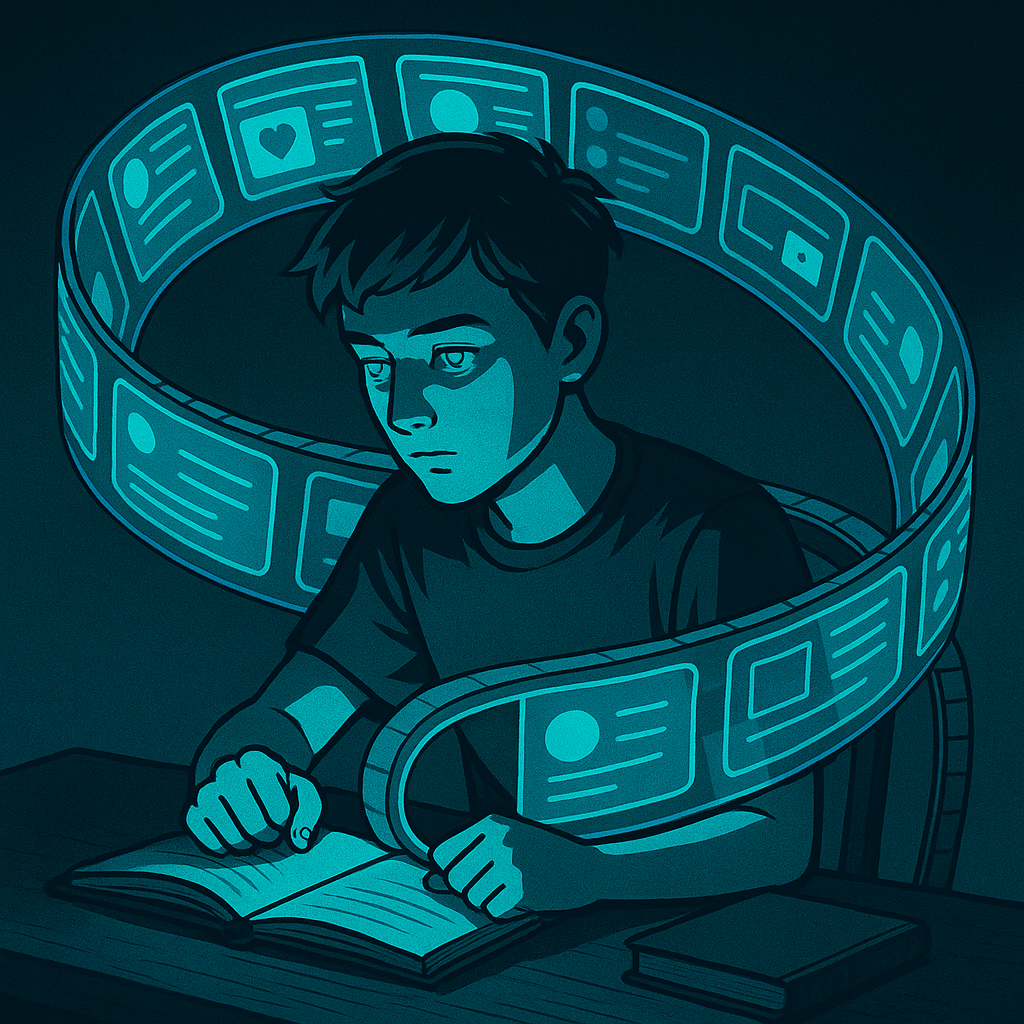The Art Contest was conceived as an opportunity to explore the role of ethics in educational technologies through creative visual storytelling. It aimed to engage Master’s students, PhD candidates, and recent graduates in developing of educational tools – specifically, a set of 10 visual cards inspired by the key concepts of the ETH-TECH Perspective Framework. These cards were intended to foster understanding and dialogue about the ethical dimensions of technology in education.
The idea behind the contest originated from a central question:
How can visual art help us to reflect on the complex ethical issues surrounding digital technologies in education?
Starting from this guiding question, participants were invited to create original visual compositions that interpreted concepts such as “global inequality”, “bias and discrimination”, and “ethics as care”. The goal was not only to produce aesthetically engaging materials, but also to stimulate critical dialogue, emotional engagement, and pedagogical reflection.
The response was enthusiastic: we received a diverse range of proposals, including fully AI-generated artworks, analogue hand-drawn illustrations, hybrid methods combining human and machine creativity, and conceptually rich visual narratives. The proposals reflected a variety of backgrounds – from art and design to philosophy and pedagogy – and showcased a wide spectrum of techniques, tones, and conceptual approaches.
The evaluation process was conducted in several phases. First, all eligible entries were anonymised and reviewed by the ETH-TECH jury, composed of professors, educators, and researchers from the project. In a first round, jury members provided individual feedback on originality, clarity, depth, and educational usability. Then, during a collective discussion at the deliberation meeting, the proposals were revisited, incorporating the previous feedback.
The deliberation process was challenging: several key tensions emerged, such as those between abstraction and clarity, between artistic freedom and didactic usability, and between digital aesthetics and analogue sensitivity. The jury sought to strike a balance among these dimensions, recognising the importance of ambiguity and metaphor, while also considering the material’s potential for classroom use and critical reflection. The final ranking reflects this rich and multifaceted exchange.

We are proud to announce the winners:
• 1st Place – Paula Delgado Hernández, for its coherence, visual language, and ability to stimulate meta-reflection on AI and identity.
• 2nd Place – Federica Caciolli, for its technical artistry and strong educational potential.
• 3rd Place – Sergio Carvajal-Leoni, for its conceptual innovation and experimental spirit.
• Honourable Mention – Egle Tonin, for its analogue originality and human-centred perspective.
The three selected works have been published under a Creative Commons licence (CC BY-SA-NC) on the ETH-TECH website and will soon be available on Zenodo. They will also be featured during a final public session, where the artists will be invited to present and discuss their contributions.
The ETH-TECH Art Contest was more than just a creative initiative… it was a space where art, technology, ethics, and education came together. And we hope it is only the beginning.
Reflections from the Artists
Following the contest’s conclusion, we are pleased to share some voluntary reflections from the winners, who offered a few personal insights into their creative and academic journeys within the ETH-TECH framework.

In the first contribution, Sergio Carvajal-Leoni’s (alias: Facundo) shares a deep reflection on his academic path and the challenges posed by AI in our societies. Read it here:
Another perspective comes from Paula Delgado Hernández (alias: Behind the Algorithm) – who reflected on her ETH-TECH experience. Read her contribution here:
Ethics and education in dialogue with technology: my experience at ETH-TECH


Completing this series of reflections, Federica Caciolli (alias: Pics) offers her own perspective on creativity, ethics, and the ETH-TECH experience. Read her contribution here:
Leave a Reply